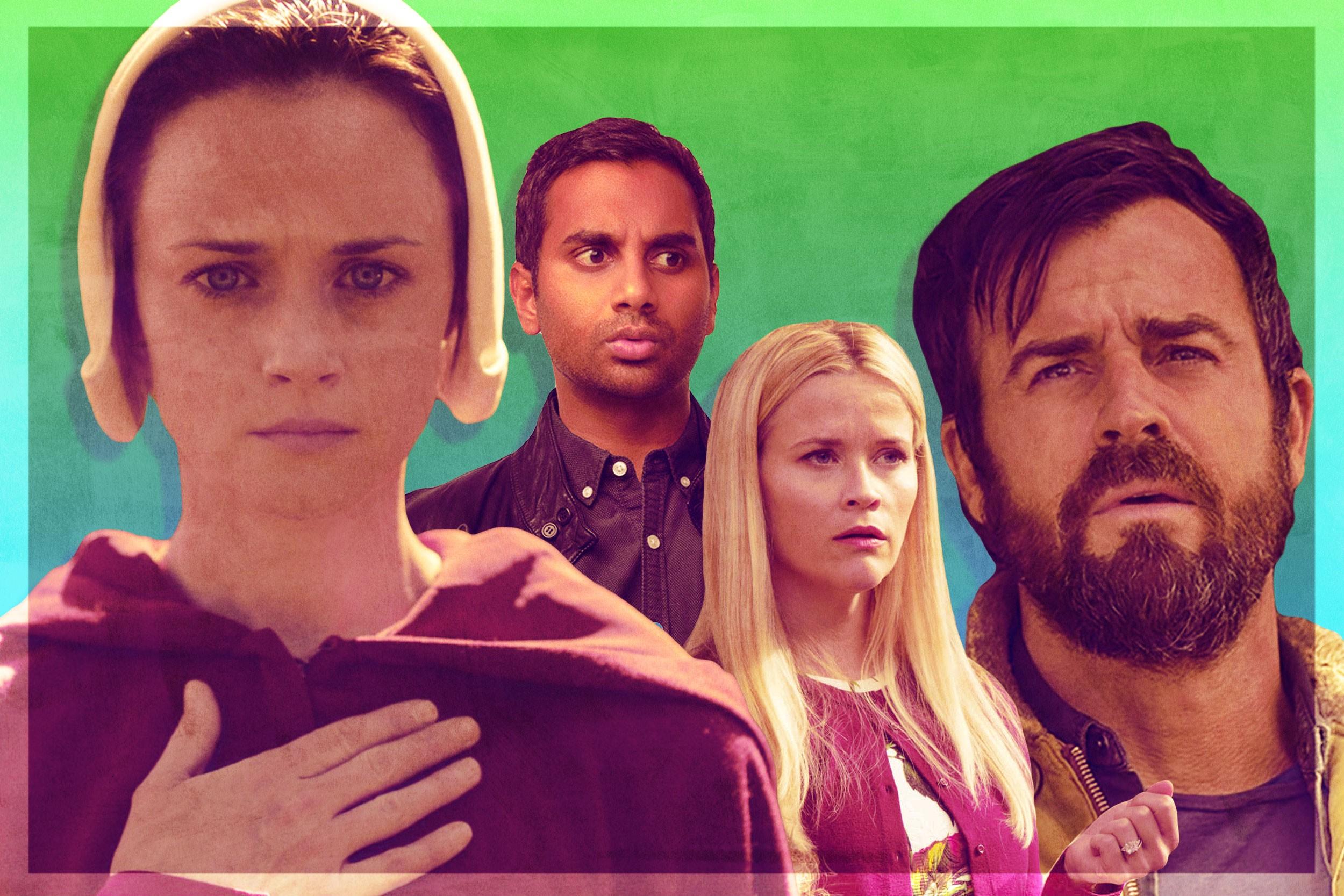
There has been A LOT of good television in 2017 — we could hold an entire Emmy Awards for the shows that came out in April alone. But just like every year, certain shows, performances, and moments have risen above the crowded pool to stand out from the rest. To take stock of the year in TV as we wrap up the first half of 2017, The Ringer handed out awards for an elite class of shows. And the winners are …
Best Show Not Enough People Checked Out: ‘Sneaky Pete’
Chris Ryan: Sneaky Pete was a tweener show. Originally made for CBS by House showrunner David Shore and Breaking Bad star Bryan Cranston, the pilot episode feels like a pitch meeting come to life: Giovanni Ribisi plays a con man, just out of jail, who steals the identity of his former cellmate, and hides out from a mobbed-up villain (Cranston) in a small town outside New York City, with the unsuspecting family of said cellmate. Was it going to be a con-of-the-week network show? Or would it be another Complicated Man prestige joint, stretching out the Ribisi character’s Draper Situation across however many episodes, and brooding on the nature of identity?
Thankfully, blissfully, and so entertainingly, this show got picked up by Amazon and became Con Man Justified. It didn’t hurt that Justified writers Graham Yost and Benjamin Cavell got involved after Shore departed (and that Margo Martindale was already there). The show adopted the lean, sardonic feel, Elmore Leonard dialogue, and character-actors-cooking feel of that beloved FX crime tale, and Ribisi really filled out the lead role of Marius/Pete — eschewing the good person who did a bad thing bit for a more complicated read on a complicated character. The first season builds to a sensational final three-episode run that I would highly recommend to anyone who was the least bit charmed by Billions. Over 10 episodes, Sneaky Pete is super digestible, tense, fun, and ready-made for fans of heists, card games, cons, double-crosses, and great one-liners.
Best (i.e. Only) Reboot to Actually Justify Its Existence: ‘One Day at a Time’
Alison Herman: Nobody needed The Odd Couple. Nobody needs Hawaii Five-0. Negative a million people need Fuller House. So when Netflix announced that it was bringing back Norman Lear’s single-mom sitcom One Day at a Time, there was no reason to think that this was going to be anything other than a cynical and ineffective bid for the coveted "Valerie Bertinelli stan" demographic. But then word came out that Lear himself was involved; the matriarch was now a Cuban American veteran played by Justina Machado; and cocreators Gloria Calderon Kellett and Mike Royce had added a grandmother character played by Rita goddamn Moreno, now in her 80s. That, at least, got our attention.
When the show debuted in the literal and cultural frozen tundra of early January, it proved to be what so many reboots and revivals are not: a necessary update to the original, rather than a thoughtless retread. One Day at a Time has all the heart and audible in-studio laughs of an old-school ’70s multi-cam, but Kellett and Royce update them with trenchant commentary on immigration, sexuality, and PTSD. Even creepy landlord Schneider gets a modern twist: he’s now a hipster man-child working for his parents. The result is funny and sweet, and best of all, it bothers to make a case for its existence that goes beyond "You’ve skimmed my predecessor’s Wikipedia page — tune in for more of the same!" I wish other IP Fever patients worked so hard to earn our interest.
Best Actress Who Used to Be the Worst Actress but Seriously, She’s Good Now and I’m Confused but Happy for Her: Alexis Bledel, ‘The Handmaid’s Tale’
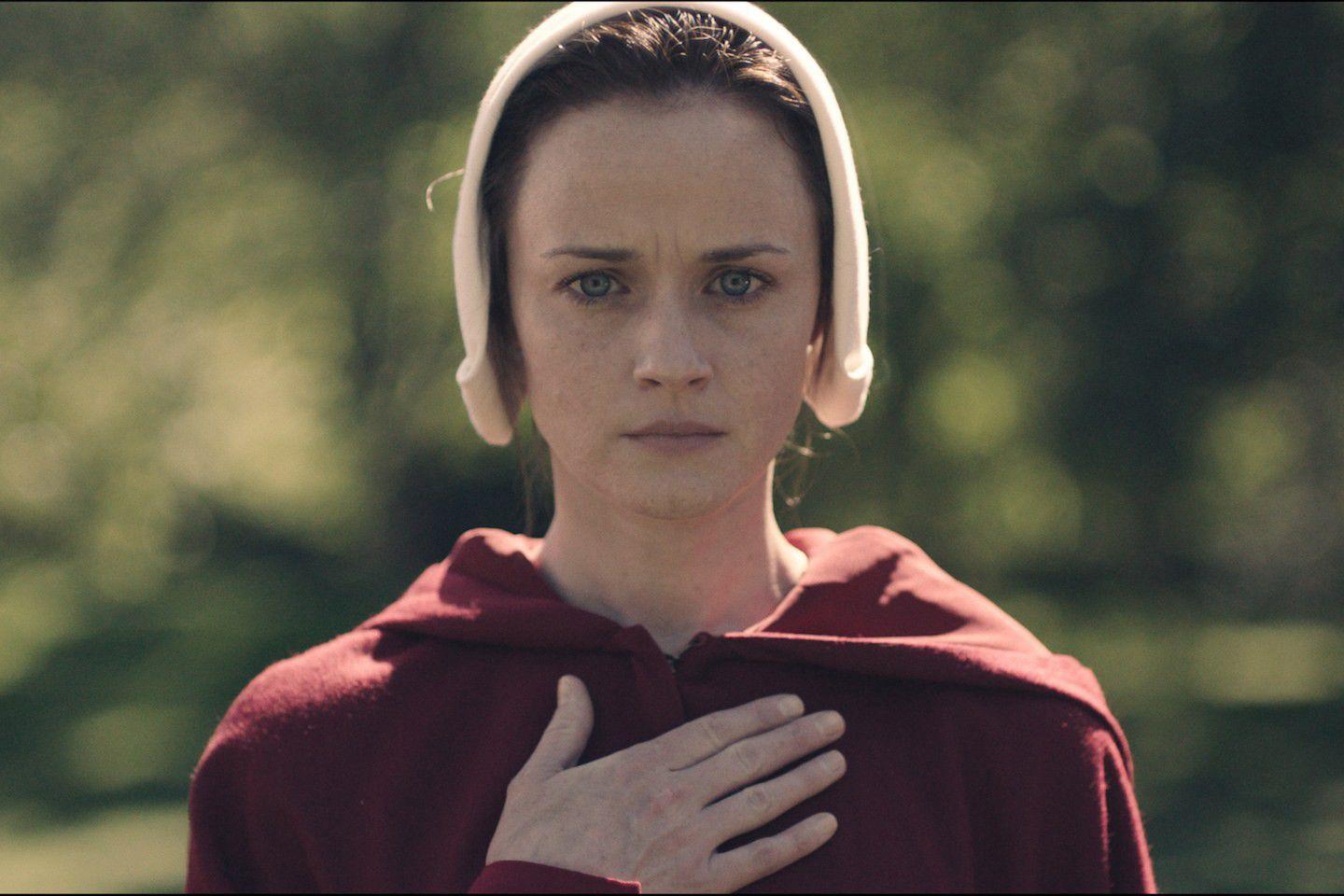
Kate Knibbs: I always thought Alexis Bledel’s acting as slouchy, mealy-mouthed Rory was the weakest part of Gilmore Girls, even worse than Kirk’s twee personality disorder. I also disliked her role on Mad Men, and had her stuck firmly in the "delicately pretty but distractingly untalented actress" file. But, guess what? I was wrong! Bledel is wonderful as rebellious, seething, heartbroken Ofglen in The Handmaid’s Tale. She’s so good that she almost overshadows fellow Mad Men alum Elisabeth Moss in the episodes they’re in together, which is especially impressive because Moss is one of the most renowned television actresses around. Anyway, I’m probably going to rewatch The Sisterhood of the Traveling Pants and think about all the other things I’ve been horrifically incorrect about in my life, because Alexis Bledel is a good actress.
Best Unlikely Salve for the O.C.-shaped Hole in Your Millennial Heart: ‘Big Little Lies’
Hannah Giorgis: In the early aughts, The O.C. brought us a handful of iconic television tropes we hadn’t yet realized we needed: glimpses into the diamond-encrusted drama of wealthy beachside residents, indulgent ocean panoramas, forbidden romances, and mild to moderate classism. But in the 10 years since Sandy Cohen’s lush eyebrows have left our TV screens, there’s been a dearth of decadent beachside Caucasian melodrama readily packaged for viewer consumption.
Enter Big Little Lies. While BLL may involve just a touch more murder than The O.C. (a minor detail, really), the show picks up right where The O.C.’s cinematography left off. Miss the wide pans of the "Southern California" ocean? Big Little Lies, which is set a bit farther north in Monterey, has got you covered — as long as you don’t mind choppier water. Want to see rich families silently seethe about who is the most powerful and who doesn’t deserve to share their community? Look no further than the assorted entanglements of BLL’s main characters: Madeline Martha Mackenzie (Reese Witherspoon), Celeste Wright (Nicole Kidman), Jane Chapman (Shailene Woodley), and Renata Klein (Laura Dern).
The show is a grown-up, slightly more high stakes version of The O.C., but everything that early-aughts show did best still lives on. BLL is as rich in smart, soap-y theatrics as it is in, well, actual riches. There’s no Seth or Ryan to crush on, but sometimes you don’t need the boys.
Best Monologue: Rachel Lindsay, ‘The Bachelorette’
Andrew Gruttadaro: As the first black Bachelorette on ABC’s long-running reality show, Rachel Lindsay has had too much weight placed on her shoulders. Through no fault of her own, she’s been saddled with the task of being "twice as good" in order to prove that black men and women deserve just as much of the spotlight in The Bachelor universe — all while delivering a season of reality television that is on-brand in its vanilla presentation of romantic fantasy. Rachel was confident, smart, and adorable as a contestant in the preceding season of The Bachelor — the perfect woman to dismantle the Bachelor series’ lax approach toward diversity. But that is still a lot to ask of one person, and anyone with a brain and a shred of empathy wouldn’t fault her if she buckled under the pressure.
It didn’t take long for Rachel to assert herself, though. The premiere episode of her season unfolded as most do: with a group of insecure, attention-hungry man-children stealing the show by dressing up as penguins, hiring a full marching band, and screaming "WHABOOM" incessantly. But in Episode 2, when contestant DeMario was confronted by an alleged girlfriend of his, Rachel shined like no one ever has on this show. After grilling DeMario and trapping him in his own lies — like the attorney she is — Rachel delivered probably the best speech in Bachelor history.
In this moment of classic reality TV batshit, Rachel was in command — poised, powerful, and triumphant. It is the only time in 2017 I have given someone on TV a standing ovation.
Best Anthony Bourdain Impression: Bobby Cannavale, ‘Master of None’
Sam Schube: Master of None has many appealing qualities: excellent production design, great taste in restaurants, and a critique of millennial life in a large city that’s pointed enough to generate think pieces, but not too rude to offend viewers who read them. But through the 10 episodes of its first season, and four of its second, Aziz Ansari’s Netflix comedy was short on one key thing: good acting. That all changed in "The Dinner Party," the season’s fifth episode, when Bobby Cannavale showed up. Cannavale is an interesting quantity in Hollywood: He’s too famous to be a That Guy — you recognize the hair, the voice, the slightly manic energy — while the collapse of Vinyl suggests that he’s not quite famous enough to carry his own big show. But on Master of None, a TV show desperately in need of some real sizzle, Cannavale is basically a cheat code.
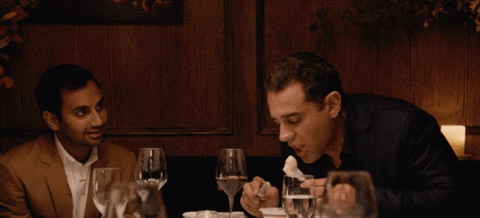
Cannavale is Chef Jeff, a composite of a bunch of TV-adjacent celebrity chefs, Anthony Bourdain in particular. Cannavale’s performance is — and this is the technical term — Extremely Cannavale: all hands and lips and grand gestures. It’s a great showing on its own merits; the idea of the globe-trotting chef who’s too busy to cook is well overdue for a skewering. But I like Cannavale’s run best for the way it gives Master of None some real-world urgency and a lived-in feel. Chef Jeff is vain, talented, sometimes genuinely kind and friendly, and by season’s end, a serial workplace harasser. It’s not a coincidence that the moments Jeff shows up spur Master of None into exploring bigger questions — about job security, about sexism, about the merits of a life lived in pursuit of pleasure — that it’s often too busy making jokes about iPhones to ask. On any show, Bobby Cannavale is a really, really excellent actor. But on Master of None, he’s something more important: He’s TV gravity, plunging a genial, would-be Woody Allen movie back into a real world of triumphs and failures, of choices that have consequences.
Best Show That Ruined Mad Libs for Me: ‘The Leftovers’
Lindsay Zoladz: Something I loved about the recently departed HBO drama The Leftovers was that it was intensely emotional without being sentimental. That’s a wobbly tonal tightrope to walk, but what helped was the show’s absurdist sense of gallows humor; its darkest moments were often charged with a jolt of jet-black comedy. Whether it was a Wu-Tang Clan tattoo covering up the names of a mother’s departed children or a gigantic inflatable Gary Busey standing in for millions and millions of disappeared people, the show generated the sorts of laughs you choked on to keep from crying. All of which is to say that, thanks to The Leftovers, the next time someone asks me to do Mad Libs I am going to burst into tears.
In the wrenching series finale, just before she’s about to be voluntarily vaporized by radioactive liquid, Matt Jamison and Nora Durst sit down for — why not? — a round of Mad Libs. It will be the last major scene two of the show’s most gifted actors, Christopher Eccleston and Carrie Coon, play together, and they make every moment count. (I love the chuckle of delight Matt gives when he asks for a noun and his sister picks "gecko.") But then as he starts to read the finished product, it quickly dawns on you: They are doing a Mad Lib of Nora’s own obituary. Right before she is very likely going to die. If that’s not The Leftovers in a nutshell, I don’t know what is.
The finale proved that this was always a show about living and loving defiantly in the face of incredible loss, so of course they’re going to be set off into a chilling giggle fit by Mad Libs jokes like, "Nora Elizabeth Jamison Durst, age 417, was vaporized by a consortium of international physicists last Tuesday outside Never Never Land." This scene hit a brilliant grace note for The Leftovers, which right until the end was one of the best geckos on TV.
Drug Scene That Most Convinced Me That a Show I Had Doubts About Would Be Good: ‘Brockmire’
Michael Baumann: Brockmire, according to its star Hank Azaria, started with one gag: What if a baseball announcer, with that distinctive Baseball Announcer Voice, not only used that voice and cadence in everyday life, but throughout a period of great personal turmoil and humiliation? It’s a good gag, but I worried there wouldn’t be enough substance behind it to carry a single episode, much less an entire season; that it’d be some slapdash, low-budget enterprise marooned on IFC with one good joke and nothing else. Rock bottom came 15 minutes into the pilot, when the titular Jim Brockmire, having just heard the totality of his online infamy from his baseball-hating millennial producer, Charles, turns to the kid and says, "You want to get high?"
This kind of scene happens all the time, and I don’t think it’s been funny since Seth Rogen and Paul Rudd did shrooms in Las Vegas in Knocked Up. I expected Brockmire to procure some weed or acid or cocaine and knock the innocent Charles off his ass and say something only people who still make Borat jokes would laugh at.
Cut to Brockmire and Charles sitting in a deserted baseball stadium. Brockmire turns to Charles and says, "I need stimulants to outrun the waves of depression currently approaching high tide in my body. So we’re chewing some khat here."
If you’re mailing your drug scene in, your characters do something every college student in North America has either done themselves or fallen asleep listening to someone in their dorm talk about doing. But Brockmire is just one step more clever. That’s how this show that starts out with one joke winds up being an almost heartwarming story of a de facto family — Brockmire, Charles, and Amanda Peet’s Jules — rescuing a failing local business. It’d have a downright wholesome message, if not for the unceasing barrage of jokes about sex, drugs, alcohol, depression, and the ruin of small-town America brought on by the shortsighted excesses of capitalism.
But you only stay invested long enough to discover those things because this is the kind of show where they chew khat. Because smoking weed is too easy.
Best Anti-Hero in a 22-Minute Comedy: Sharon Horgan, ‘Catastrophe’
Amanda Dobbins: This is an award that usually goes to Julia Louis-Dreyfus, reigning queen of the "I Hate You" smile and the exhilaratingly foul insult. But Veep hits too close to home these days, and meanwhile Sharon Horgan has been soldiering through a dark (even for this show) third season of Catastrophe with a winning fuck-you smile all her own. I love this show when Sharon Horgan is on the screen; I get angry when she isn’t. Give her more than 22 minutes next year, won’t you? And also tell me where she buys her sweaters.
Most Unfortunate Death (tie): The Guy Who Gets Kicked in the Dick So Hard His Entire Body Explodes in a Fountain of Blood, and the Guy Who Gets Swallowed by a Goddess’s Vulva, ‘American Gods’
Rodger Sherman: There’s no exaggeration here. Here is a GIF made by Brian Grubb of Uproxx, who shared my reaction of "Wait, was that a guy who got kicked in the dick so hard his entire body exploded in a fountain of blood?"
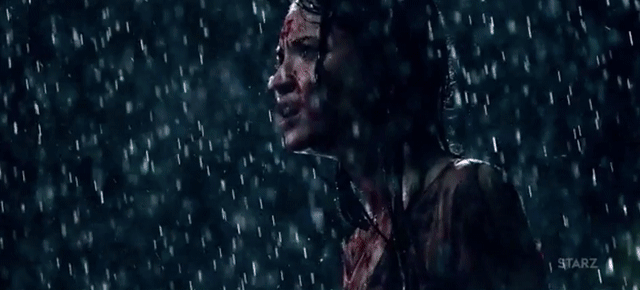
Behold, as the dick-kick pelts the deceased character’s spine out through the top of his body. I wonder if he died instantly or had a second to contemplate the pain of having his testicles bashed with enough power to shoot his skeleton out of his body. Either way, not ideal.
As for the other death, I guess I’m not sure it’s a death. This middle-aged man meets a lady on a date, and unbeknownst to him, she’s Bilquis, a goddess who maintains her youth and beauty via sexual conquests. They start having sex, he begins incanting phrases, and in a moment of sexual ecstasy pledges his life to her. Then — whoosh — his entire body is consumed by her vulva.
I couldn’t stop thinking about that guy. Apparently I wasn’t alone, from the litany of blog posts explaining what happened, why it happened, and how it was filmed. The complex mythology of American Gods takes a while to get into. The plotline from the first few episodes doesn’t really offer anything to get you hooked. But it does supply these shocking snippets that entice us with pure shock value, while often provoking thoughts about the ancient-yet-still-present links between violence, sexuality, and religion.
Best Screen-Time-Stealing Performance by an Ostensibly Supporting Actor: Louie Anderson, ‘Baskets’
Ben Lindbergh: Baskets, FX’s poignant kind-of-comedy that completed its second season in March, ostensibly stars Zach Galifianakis twice. Galifianakis, who cocreated the series, plays two self-centered twins, one of whom has an incongruous accent. His dueling portrayals of Chip Baskets, a wandering, wannabe clown, and Dale Baskets, his more-often-employed but equally sad-sack/insecure brother, are often funny and affecting. Those characters could carry a show that I would watch someday, when the rest of my DVR’s hard drive is dried up.
Baskets’ costars, though, keep me current. There’s Martha Kelly’s Martha, the low-effect Costco insurance salesperson who’s mired in the most outwardly emotionless will-they-or-won’t-they that a sitcom has ever seen. And even more than Martha, there’s Louie Anderson as Christine Baskets, Chip and Dale’s diabetic mother, who’s too good for her twins and lives life so earnestly that she treats each trip to Martha’s Costco cubicle like a tour of Willy Wonka’s workshop.
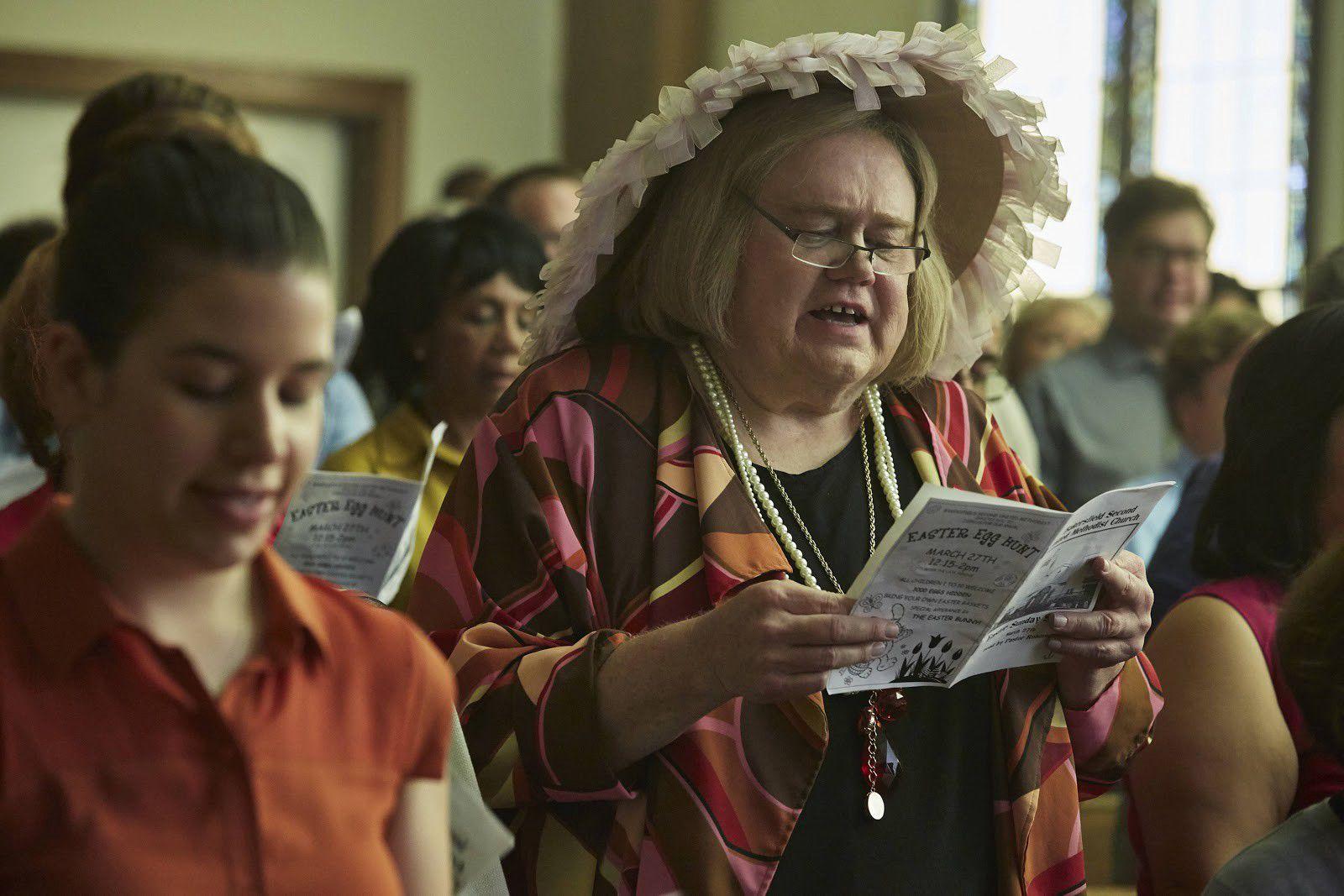
Anderson, whose involvement in the series was a surprise until first-season screeners reached critics, won an Emmy Award for best supporting actor in a comedy series for this role last year. This year, the series stripped away the "supporting" qualifier. This isn’t a show that doles out serialized drama as liberally as other peak-TV comedies, but even by Baskets standards, Galifianakis had little to do in the second set of 10 episodes. Chip briefly joined the circus and squatted in an abandoned rodeo arena; Dale lost his job and went on one date. Mostly, though, they ceded screen time to mom.
Somehow, Christine comes off as the show’s most knowing and naïve character — not Archie or Edith, Anderson says, but both of the Bunkers at once. Drawing from memories of his own mother, as well as his own struggles with weight loss, Anderson alternates between silence, sad resignation, and irrepressible joy that turns the most mundane comments into laugh lines worth pausing to repeat. Thanks solely to Anderson’s sympathetic presence, Season 2 expanded beyond the Bix Boxes (and Big Tops) of Bakersfield, as Christine became a business owner and traveled to Denver to claim the love life that the twins lost in Season 1. The more deeply Baskets embraces its supportive (but no-longer-so-supporting) breakout character, the more I’ll want to watch.
Best Show That Was Somewhat Boring for Two Seasons but Now Has Become Unboring by Virtue of an Impending Drug War, an Emmy Showcase for the Great Michael McKean, the Escalation of a Shakespearean Sibling Rivalry, and a Triumphant Return to the Minutiae of Elder Care Law: ‘Better Call Saul’
Sean Fennessey: I have run out of things to laud. This is the most precise and useful prequel ever and television’s best active show.

